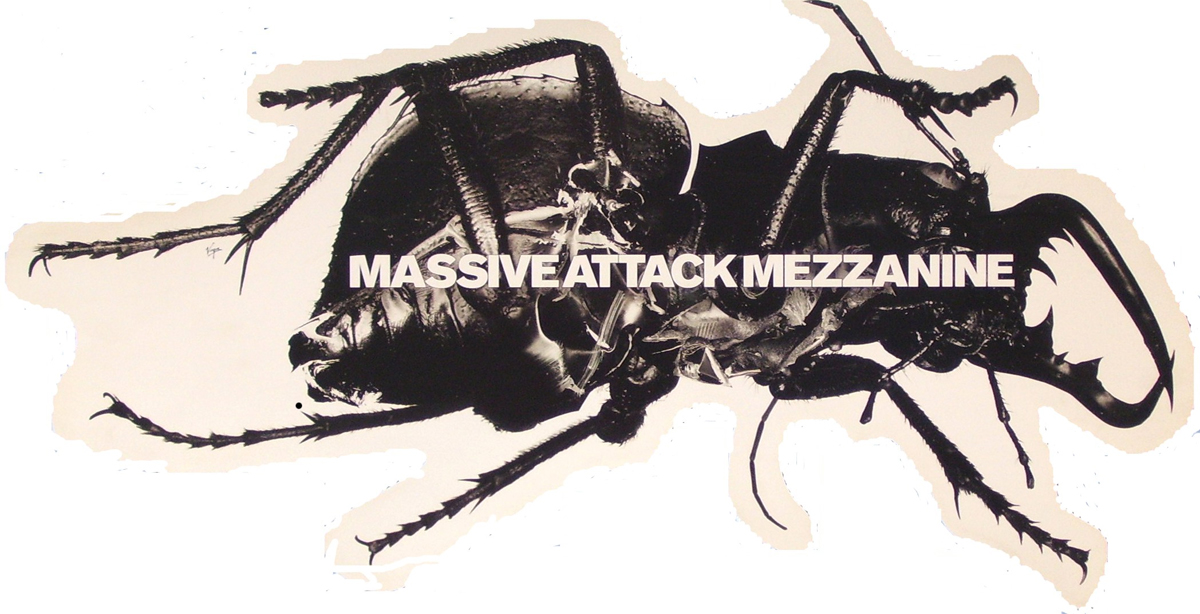But Melissa Chemam, author of the forthcoming book
Massive Attack: A Bristol Story, cautions that the group’s evolution should not be read as a simple transition from ‘black’ to ‘white’ sounds. “One dimension of the band’s music disappeared with Mushroom’s departure, for sure – the hip hop way of producing tracks, based on beats and samples,” she says. “But the band would have evolved anyway. That’s part of their DNA. They produced the equivalent of an album of new songs for the compilation album,
Collected, in 2006, and one of the highlights was
‘Live With Me’, a song 3D wrote with Terry Callier, probably the most ‘soul’ song the band had written since ‘Unfinished Sympathy’.”
In fact, says Chemam, one of the keys to Massive Attack’s success as a group was the fact that, due to Bristol’s melting-pot scene of the 80s, its members had internalised influences from across the musical spectrum before they even played a note. “They grew up in Bristol with a passion for both reggae and punk, because Bristol has long been a multicultural city. Each member inherited different tastes regardless of their own family and culture. Because Bristol had a small but fascinating underground scene... DJs with a Caribbean background became passionate about punk, and Anglo-Irish-Italian MCs and musicians learned early about African-American trends in music and reggae from Jamaica. Massive Attack embody this hybridisation inside each of their members.”
The group’s celebrated debut,
Blue Lines, arrived in 1991, bringing trip hop into the public consciousness at a time where hip hop, house, baggy, rave and, later, reggae all enjoyed a moment in the sun on the singles charts. But
Mezzanine feels rife with intimations of darker times ahead. It was released less than 12 months into Blair’s Labour administration, in 1998, a year that saw a threefold increase in the number of migrants coming to the UK. The following decade saw rising immigration figures reflecting the realities of an increasingly globalised workforce, especially after the expansion of the EU in 2004, but the numbers only told part of the story. As a
2015 Guardian investigation into New Labour’s immigration policies observed, the 7/7 terrorist attacks, global financial crisis of 2007 and media scapegoating of immigrants combined to lay the ground for the ‘hostile environment’ policies of today, abetted by the failures of neoliberal policies in creating social cohesion. From there it’s a direct line to Brexit, and the arguments that continue to swirl around national identity today.
In fact, the group might never have materialised at all had Grant’s parents been forced to leave the country when the musician was a child. “I remember when I was a little kid in the late 60s, when they really clamped down on the immigration laws,” he told Dazed in an interview from 1998. “They said that anybody who’d been living in the country for less than seven years had to reapply for immigration. Quite a lot of my dad’s friends didn’t qualify for that and some of them had to go back. Even my dad and mum were going around trying to make sure that they were all right.”
Britain had extended UK citizenship rights to all Commonwealth subjects in 1948, as a means of attracting labour to rebuild the country after the second world war. But successive governments spent much of the 60s and 70s attempting to row back on this position, finally leading to the Windrush scandal of this year, when it was revealed the Home Office had been deporting legal immigrants who’d been resident in the UK for over half a century.
“(In the 70s) the British government struggled with unemployment,” says Chemam. “And by then, the former Caribbean colonies like Jamaica and Barbados had become independent. So the supply workers called in the 1950s, after World War II, to rebuild the country, were suddenly not so welcome anymore. And many had to face paperwork issues, visa refusal and so on. Many had to leave.”
For Chemam, who spent time reporting on Brexit and the refugee crisis of 2015 for the BBC, the parallels with today are clear: “The situation is indeed quite similar for foreign workers today, except that the UK isn’t exactly in a financial or commercial crisis in 2018. Now, despite the fact that Britain is one of the richest countries in the European continent, it is also one of the most unequal. And by far the least open to receiving immigrants from warzones. (Massive Attack’s) music is a testimony for sure of the richness of any social mix and diversity. It’s a beautiful story, and a rare story that can only inspire in our days of neo-conservatism and division.”
Two years on from Brexit, the battle for Britain’s soul is still raging.
Mezzanine stands as a thrilling reminder of what can be won – and lost – when we decide how we feel about the proverbial man next door.
Massive Attack play the Eden Project on June 15 and 16
http://www.dazeddigital.com/music/a...k-mezzanine-20th-birthday-retrospective?amp=1



